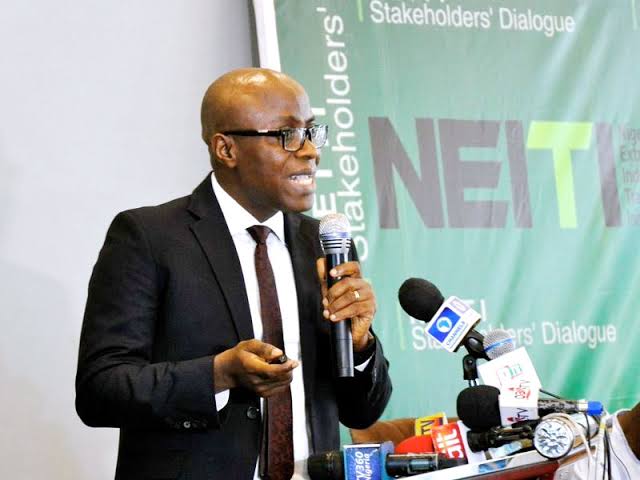As Nigeria grapples with challenges of probity in governance and efficient management of public resources, public policy think-tank weighed in recently to x-ray the memoirs of a public official who has been and left footprints worth ruminating over.
Nextier’s development discourse is a platform for engaging with deep thinkers on Africa’s development challenges and how their work can help rebuild the continent. In this, Mr. Patrick Okigbo, Nextier’s founding partner, engaged with Mr. Waziri Adio to discuss his memoir: The Arc of the Possible.
The discourse featured key insights from Mr Waziri’s tenure as the executive secretary of Nigeria’s Extractive Industries Transparency Initiative (NEITI). The conversation centred around getting things done and the importance of defining and adhering to one’s values in a public service career. Key insights from the discourse are highlighted below.
Creating Public Value: Mr. Waziri adopted Mac Moore’s management philosophy of creating public value. This concept demands managers with an entrepreneurial mindset to aggressively seek opportunities to create value. It also involves developing a measurement system, establishing a base of authorisation, support and financing and developing the operational capacity required to produce results.
In the case of NEITI, Mr. Waziri identified that NEITI’s audit reports always lagged behind schedule and that the recommendations were not implemented. He expanded the agency’s work to include policy analysis and advocacy to address these problems.
The Human Side of Management: Leadership involves getting the right people on board, getting everyone to align on the same mission and equipping them with the necessary tools to get things done. Having the right people on board entails strengthening the civil service recruitment system to attract hardworking and competent people. It also involves preparing technical experts from other sectors to understand the public sector’s tradition, pace, and processes. Furthermore, the chief executive must ensure that everyone aligns with the organisation’s vision. To achieve this consensus, Mr Waziri employed a leadership by example model. He provided proof of concept and opportunities for learning and impactful work.
Getting things done; the right theory of change: NEITI’s theory of change that transparency leads to accountability and subsequently good governance closely models Justice Luis Brandeis’s theory that publicly shining a light on the government’s inefficiencies leads people to rise and demand change. NEITI has been successful in driving reforms in the extractive sector. However, it would need to bridge the linkages between transparency, accountability, and good governance to make further progress. Such linkages are important because for people to demand action, they must have the capacity to understand the information in the open and to ask the right questions.
Getting things done; the right stakeholder engagement system: Public managers must understand how and why change occurs. Furthermore, they must be skilled in the act of political management. Managers must find the right strategy to engage with authorities. While at NEITI, Mr. Waziri employed evidence and strategic engagements to drive change. He employed this system because he realised that sometimes leaders don’t listen because the message is unclear or other things are engaging their attention. So, leaders need to employ innovative ways to get evidence across to the key stakeholders responsible for driving the required result.
The Arc of the Possible discussed rich insights and examples for getting things done in Nigeria’s public sector. However, Mr Waziri acknowledged the limits of personal examples to drive sustainable change. System-wide change requires a top-down effort.
Mr. Waziri rightly captioned this in the clause: “Individual example is key, but the environment is king. However, Mr Waziri advised young people to develop relevant knowledge and skills, develop a service mindset, clarify their values and build mental toughness to withstand the pushback from the entrenched constituency deeply invested in sustaining the dysfunctional status quo.



